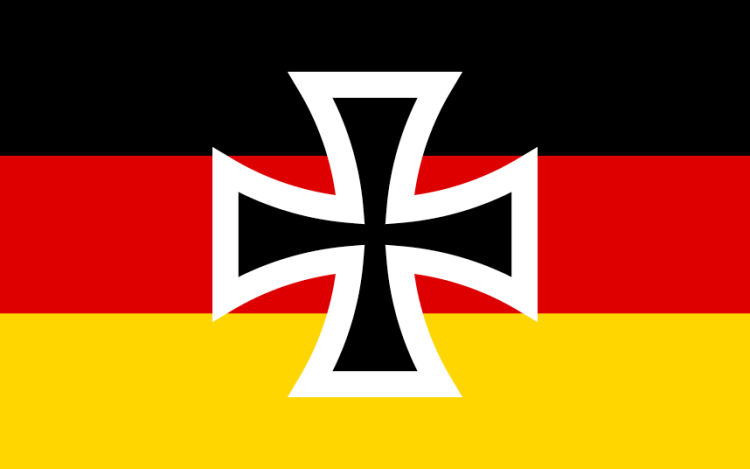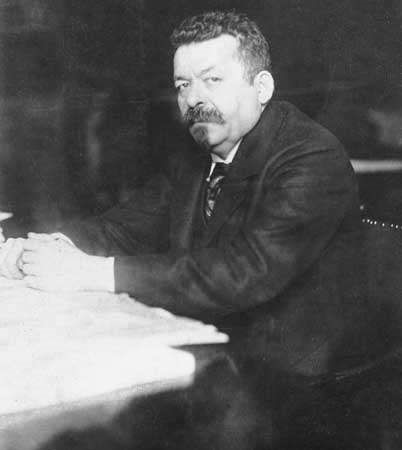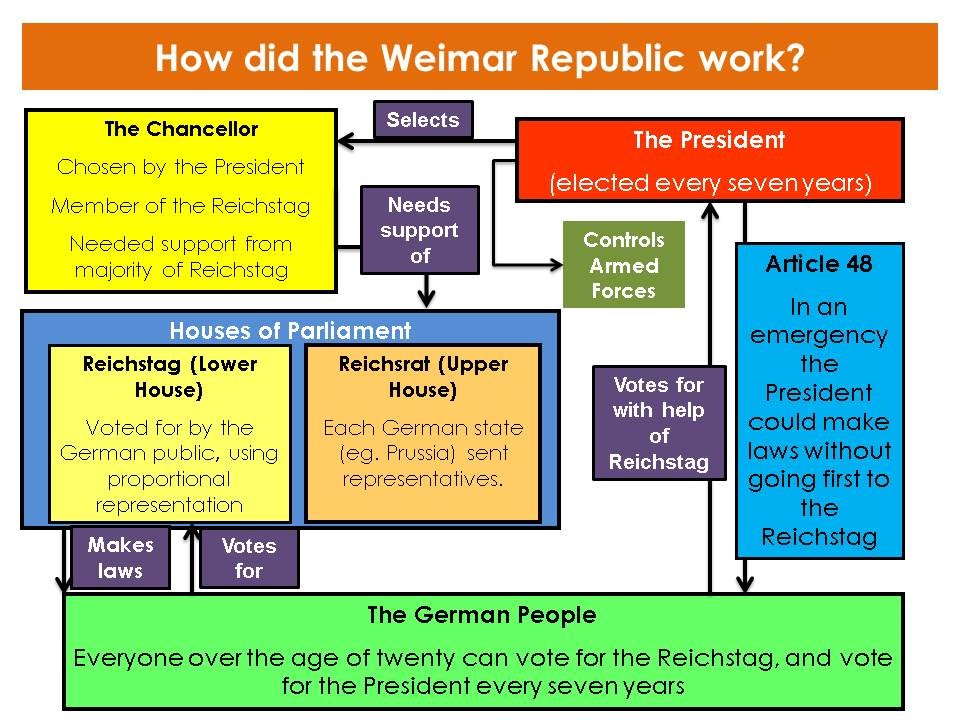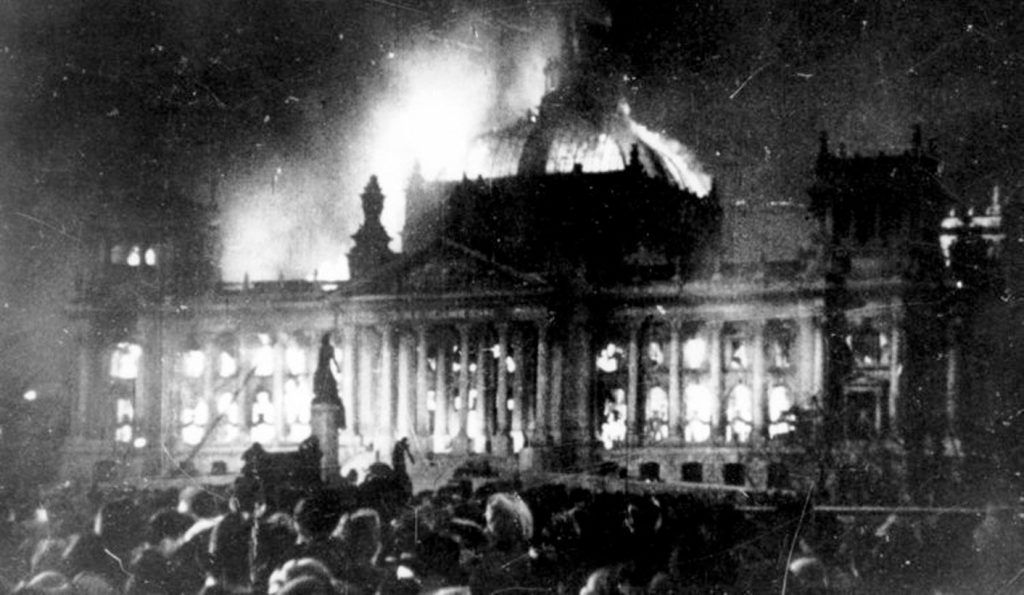
The national assembly met in Weimar on February 6, 1919. Ebert’s opening speech underlined the breach with the past and urged the Allies not to cripple the young republic by the demands imposed on it. On February 11 the assembly elected Ebert president of the Reich, and on February 12, Scheidemann formed a ministry with the Centre Party and the German Democratic Party (DDP).

Friedrich Ebert. Encyclopædia Britannica, Inc.
The principal task of the assembly was to provide a new constitution, which was promulgated on August 11, 1919. The government’s draft had been drawn up by Hugo Preuss, of the Democratic Party. Preuss, however, was not able to secure a unitary Reich in which Prussia would have been broken up and the old states (Länder) abolished in favour of a new division by provinces. The republic, like the empire that it replaced, was to have a federal basis. The powers of the Reich, however, were considerably strengthened, and it was now given overriding control of all taxation. National laws were to supersede the laws of the states, and the Reich government was given the power to supervise the enforcement of the national laws by the local authorities. Under the umbrella of the republic there were 17 Länder in all, ranging from Prussia, with a population (in 1925) of 38,000,000, and Bavaria, with 7,000,000, to Schaumburg-Lippe, with 48,000. The only new Land was Thuringia, formed in 1919 from the amalgamation of seven small principalities.
The Länder continued to be represented in the Reichsrat, which replaced the imperial Bundesrat, but the new chamber became subordinate to the Reichstag, to which alone the government was made responsible. All men and women over the age of 20 were to have the right to vote for the Reichstag, and the elections were to be conducted on the basis of proportional representation. Provision was also made for popular initiatives in legislation and for referenda.
As a counterweight to the Reichstag, the president, as the chief executive, was endowed with strong powers. He was to be elected independently of the Reichstag by the nation itself, was to hold office for seven years, and was to be eligible for reelection. He was to make alliances and treaties, and he was the supreme commander of the armed forces, with the right to appoint and remove all officers. The president could dissolve the Reichstag and submit any law enacted by it to a referendum. Finally, under Article 48, the president had the right to suspend the civil liberties guaranteed by the constitution in case of emergency and to take any measures required to restore public safety and order. These provisions reflected the insecurity, bordering on civil war, that Germany faced at the time, and they were to prove of great importance in the final stages of the history of the Weimar Republic. Under the president, political responsibility was to rest with the chancellor. The government was made dependent upon the confidence of a majority of the Reichstag, and, with the withdrawal of this confidence, the government would be required to resign.
The Weimar constitution has been subjected to considerable criticism, notably for the system of proportional representation that it introduced and the large powers that it conferred on the president. For the first time in German history, however, it provided a firm foundation for democratic development. The fact that within 14 years this ended in a dictatorship was due far more to the course of events and to the character of social forces in Germany than to constitutional defects.
The German Reich, as it was reestablished in 1919, was a democratic but not a socialist republic. A number of measures for the socialization of certain parts of the national economy (such as the coal, electrical, and potash industries) were introduced but proved ineffectual. German industry continued to be marked by cartels and other combines of a monopolistic character, control of which was increasingly concentrated in the hands of a small number of men. Because of the hopes aroused in 1918–19, the fact that no far-reaching plan for securing public control over industry or for breaking up the big landed estates was carried through had two consequences. First, although the German working class undoubtedly improved its political and economic status under the republic, a considerable portion of it was embittered by the failure to effect drastic reform of the social and economic systems. This disenchantment was to provide the left-wing opposition with strong working-class support, which weakened both the Social Democratic Party and the republic. Second, economic power was left in the hands of those who were either irreconcilable opponents of the republic from the beginning or equivocal supporters with a preference for authoritarian forms of government.
The position of the trade unions, the eight-hour workday, and the right of collective bargaining were safeguarded under the republic, but the attempt to extend democracy to the industrial sphere met with powerful opposition from the industrialists. A system of works councils set up early in 1920 enabled the workers in each factory to elect representatives to share in the control of management. This experiment, however, soon disappointed the hopes entertained for it, largely because of the stubborn resistance of employers. The attempt to establish an economic parliament (Reichswirtschaftsrat), with equal representation for employers and workers, proved similarly disappointing.

Issues with the Weimar Constitution
In his book The Rise and Fall of the Third Reich, historian William L. Shirer described the Weimar Constitution as “on paper, the most liberal and democratic document of its kind the twentieth century had ever seen … full of ingenious and admirable devices which seemed to guarantee the working of an almost flawless democracy.” Yet, the Weimar Constitution had serious problems.
The allocation of presidential powers was deeply problematic. The Weimar Constitution allowed the president to dismiss the chancellor, even if the chancellor retained the confidence of the Reichstag. Similarly, the president could appoint a chancellor who didn’t have the support of the Reichstag. Further, the government structure was a mix of presidential and parliamentary systems, with the president acting as a “replacement Kaiser” and assuming some of the powers the monarch would have wielded. Article 48, the so-called Notverordnung (emergency decree) provision, gave the president broad powers to suspend civil liberties with an insufficient system of checks and balances. This presented an opportunity that Adolf Hitler was quick to seize once he became chancellor.

The use of a proportional electoral system without thresholds to win representation has also been cited. This system, intended to avoid the wasting of votes, allowed the rise of a multitude of splinter parties, many of which represented the extreme ends of the political spectrum, which in turn made it difficult for any party to establish and maintain a workable parliamentary majority. This factionalism was one contributing factor in the frequent changes in government. Shirer cites the presence of some 28 political parties in the 1930 national elections; Otto Friedrich cites 40 different groups in the Reichstag in 1933. There was no threshold to win representation in the Reichstag, and hence no safeguard against a quick rise of an extremist party. It was possible to win a seat in the chamber with as little as 0.4 percent of the vote. In the 1924 elections, for instance, the Bavarian Peasants’ League got just 0.7% of the vote—but this was enough for three seats in the Reichstag. However, the rise of the Nazis (NSDAP) to form the largest party during the 1932 elections, can only be attributed to the sentiment of electors in Weimar Germany.
Even without these problems, the Weimar Constitution was established and in force under disadvantageous social, political, and economic conditions. In his book The Coming of the Third Reich, historian Richard J. Evans argues that “all in all, Weimar’s constitution was no worse than the constitutions of most other countries in the 1920s, and a good deal more democratic than many. Its more problematical provisions might not have mattered so much had the circumstances been different. But the fatal lack of legitimacy from which the Republic suffered magnified the constitution’s faults many times over.
Hitler’s subversion of the Weimar Constitution
Less than a month after Adolf Hitler’s appointment as chancellor in 1933, the Reichstag Fire Decree invoked Article 48 of the Weimar Constitution, suspending several constitutional protections on civil rights. The articles affected were 114 (habeas corpus), 115 (inviolability of residence), 117 (correspondence privacy), 118 (freedom of expression /censorship), 123 (assembly), 124 (associations), and 153 (expropriation).
The subsequent Enabling Act, passed by the Reichstag on 23 March 1933, stated that, in addition to the traditional method of the Reichstag passing legislation, the Reich government could also pass legislation. It further stated that the powers of the Reichstag, Reichsrat and Reich President were not affected. The normal legislative procedures outlined in Articles 68 to 77 of the constitution did not apply to legislation promulgated by the Reich government.
The Enabling Act was effectively a constitutional amendment because of the foregoing alterations to the normal legislative process. The act met the constitutional requirements (two-thirds of the Reichstag’s members were present, and two-thirds of the members present voted in favor of the measure). The Act did not explicitly amend the Weimar Constitution, but there was explicit mention to the fact that the procedure sufficient for constitutional reform was followed. The constitution of 1919 was never formally repealed, but the Enabling Act meant that all its other provisions were a dead letter.
Two of the penultimate acts Hitler took to consolidate his power in 1934 actually violated the Enabling Act. Article 2 of the act stated that:
‘Laws enacted by the government of the Reich may deviate from the constitution as long as they do not affect the institutions of the Reichstag and the Reichsrat. The rights of the President remain undisturbed.’
Hindenburg died on 2 August, and Hitler appropriated the president’s powers for himself in accordance with a law passed the previous day. However, in 1932 the constitution had been amended to make the president of the High Court of Justice, not the chancellor, acting president pending new elections. Nonetheless, the Enabling Act did not specify any recourse that could be taken if the chancellor violated Article 2, and no legal challenge was ever mounted.
Legacy
After the passage of the Enabling Act, the constitution was largely forgotten. Nonetheless, Hitler used it to give his dictatorship the appearance of legality. Three Reichstag elections were held during his rule. However, voters were presented with a single list of Nazis and “guest candidates”, and voting was not secret. Thousands of his decrees were based explicitly on the Reichstag Fire Decree, and hence on Article 48.
In Hitler’s 1945 political testament (written shortly before his suicide), he appointed Admiral Karl Dönitz to succeed him. However, he named Dönitz as President, not Führer, thereby re-establishing a constitutional office which had lain dormant since Hindenburg’s death ten years earlier. On 30 April 1945, Dönitz formed what became known as the Flensburg government, which controlled only a tiny area of Germany near the Danish border, including the town of Flensburg. It was dissolved by the Allies on 23 May. On 5 June, the Allied Berlin Declaration abolished all the institutions of German civil government, and this established that the constitution no longer held any legal force.
The 1949 Constitution of the German Democratic Republic contained many passages that were directly copied from the 1919 constitution.[ It was intended to be the constitution of a united Germany, and was thus a compromise between liberal-democratic and Marxist–Leninist ideologies. It was replaced by a new, explicitly Communist constitution in 1968, which remained in force until the reunification of East and West in 1990.
The Basic Law for the Federal Republic of Germany, enacted in 1949, said ‘provisions of Articles 136, 137, 138, 139 and 141 of the German Constitution of 11 August 1919 shall be an integral part of this Basic Law’. These articles of the Weimar constitution (which dealt with the state’s relationship to the different Christian denominations) remain part of the German Basic Law.
In the judicial system based on the Basic Law, the Weimar constitution initially retained the force of law (with the exception of the Church articles on a non-constitutional level), where the Basic Law contained nothing to the contrary. These norms were, however, largely redundant or dealing with matters reserved to the Länder, and as such officially set out of force within two decades; aside from the Church articles, the rule that titles of nobility are to be considered part of the name and must no longer be bestowed (Art. 109 III) is the only one left in force.